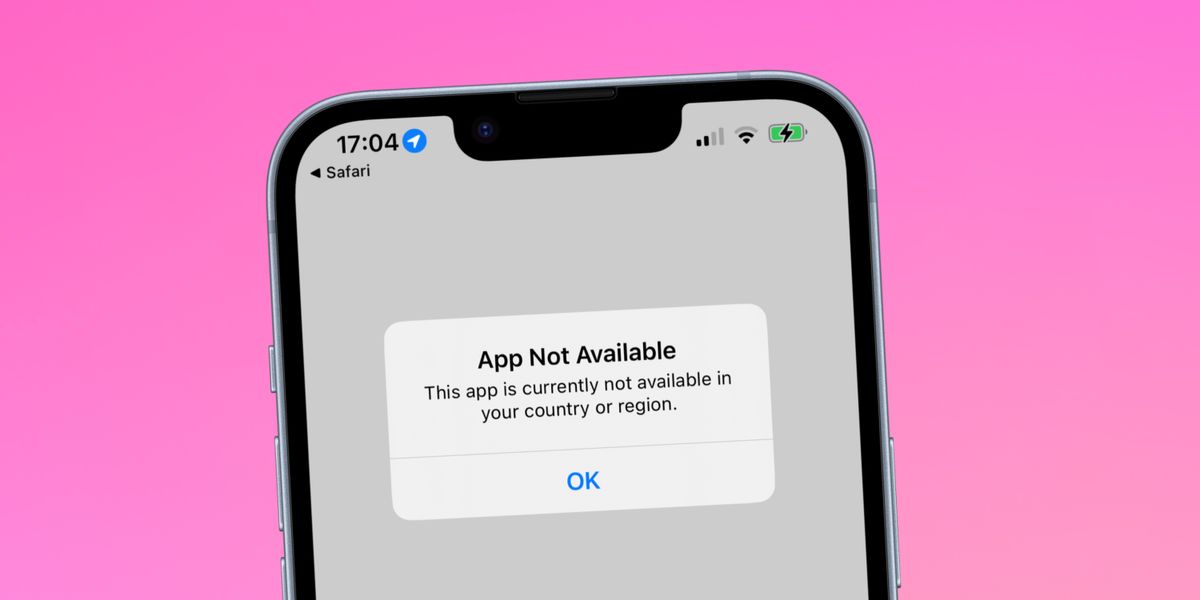Time for a Geolocation overhaul
People are more than a billing address.

Travel the world and you'll find companies think they only have local customers.
If you visit the UK and try using a Costa Coffee card, want to check the Freeview TV Guide or top up a PAYG SIM card, and you'll quickly find that all of these apps are limited to the UK App Store.
Parking app? UK App Store. BBC Weather? UK App Store.
This isn't a UK-specific problem. Visiting the US recently, I was impressed that I could pay for my petrol (sorry, 'gas') using an App Clip on my phone. Except I couldn't. Because the app was US-only. Just like the contactless payment option.
Changing countries or regions for your Apple ID is possible, but has many drawbacks. For starters, if you switch from an Australian Apple ID to a UK Apple ID, you'll now experience issues downloading an updating Australian-only apps.
There's also the matter of region-protected movies and TV purchases, subscriptions, and the requirement of a billing address in the chosen country.
Ways your location is identified
What makes the topic of georestriction complicated is the fact that there's lots of ways companies do this. In addition to App Store region, there's also
- Billing Address: Often tied to an App Store account, the billing address of a credit or debit card can be used to limit access for paid apps.
- IP Address: Allowing anyone/everyone to download an app, but limiting content in it to those with a local IP address. Common for streaming apps.
- Phone Number: Now a common request for apps. Forcing users to provide a local phone number attempts to use this as the metric of which country you are 'from'.
Which leads us to SIM and eSIM tracking.
eSIM tracking
A more recent form of location tracking is using the identifier of a SIM or eSIM as a form of restriction. After all, if Phone Numbers once provided a reasonable check that a person is from one country, what happens when they become easier to purchase and install?
I recently had a complex problem logging into TikTok. Not only was I unable to login to any of my accounts (including that of the Upgrade podcast, which I was managing at the time), this was further compounded by TikTok refusing to state the cause of the error.
"Maximum number of attempts reached" the app first said, on my very first login attemp in the USA with an eSIM. "Service Error" a later alert helpfully stated. CAPTCHAs would have me questioning my sanity when I'd fail again and again, even when sure I was correct.

Finally the app gave a nod to the problem:
Thank you for the time you've spent on TikTok and giving us the opportunity to bring a little bit of joy into your life! We regret to inform you that we have discontinued operating TikTok in Hong Kong. For support, please send an email to feedback@tiktok.com
The only issue? I was in the USA. Not Hong Kong. I'd been to Hong Kong earlier in the year, but I no longer had a Hong Kong SIM, nor did I have any Hong Kong eSIM installed.
What I did have? An eSIM, on my iPad, from the same company as I'd purchased my Hong Kong eSIM. This led to discoveries I didn't know where even possible:
- Even if the eSIM was switched OFF, TikTok could still tell it was installed
- Deleting the eSIM entirely was needed to regain access
- Keep in mind this was an eSIM that was OFF (and expired) on my iPad. Preventing me from logging into TikTok in the US on my iPhone.
eSIMs pose a new challenge for companies that heavily regulate where they can be accessed.
A whole new level of geocreeping.
Solutions
Removing the ability to restrict apps by App Store country would be extremely user friendly, and should be seriously considered.
It won't necessarily fix the TikTok weirdness with eSIMs, but it will help the majority who just want to download an app in the country they are in.
Legal concerns are often cited as the reason this cannot happen. When a brand is owned or operated by different companies in different regions, so the argument goes, they shouldn't be downloadable globally.
I can't help feeling this is a case of 'feature exists so we'll use it'. Websites are (mostly) globally accessible. Yet brands with complex ownership in different countries all make the web work.
If the feature to restrict apps to certain countries was never implemented, companies would figure out a way to ensure the right people are using their app.
It's 2023 and time for a geolocation overhaul. Who's with me?